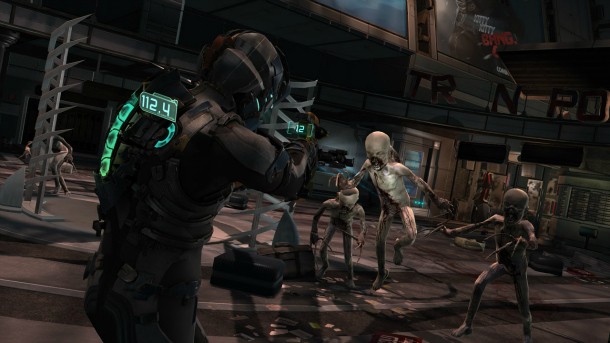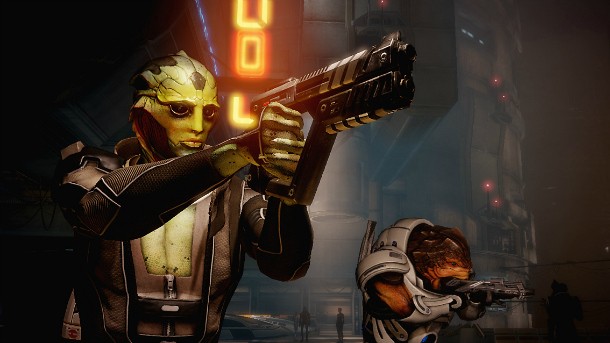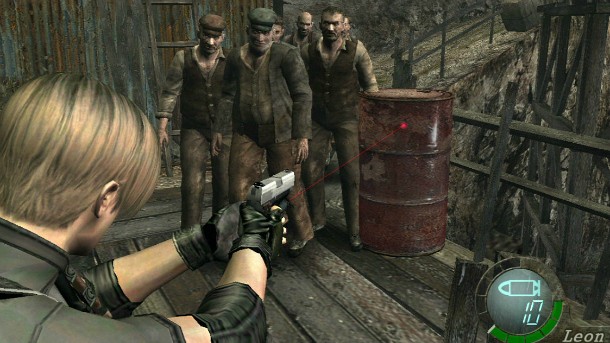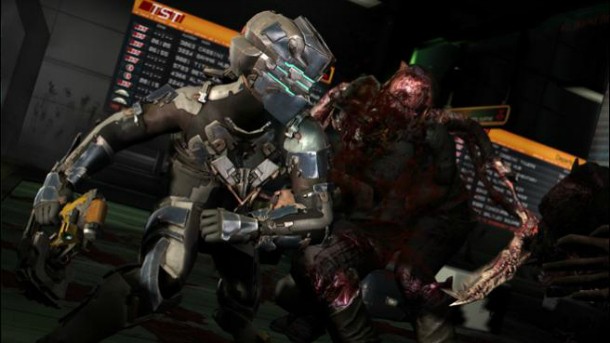Please support Game Informer. Print magazine subscriptions are less than $2 per issue
Added Thrills: How Focusing On Action Affects Franchises

Many major franchises evolve dramatically during their lifetime. Sometimes changes are made to bring in new fans or adapt gameplay mechanics for modern palates. Occasionally, it’s accompanied by accusations of “dumbing down” the formula. Resident Evil began as a survival horror trailblazer and became a blockbuster action game. Mass Effect shifted from sci-fi RPG towards something involving more skill than number crunching. For all of the flak these franchises receive for their changes, I’m all for them if they’re done right. If simpler combat and controls allow a title to place more focus on the story or add more intensity to the game, then I fully embrace the shift. 
Building Relationships
The original Mass Effect began the series with many more RPG elements than the latter two installments contain. Talent points could be spent on different weapon types, armor varied more from one character to the next, and both featured varying levels of upgrade slots. Come Mass Effect 2, the focus was placed more on streamlining combat and capturing the fundamentals of character customization.
To me, this change was extremely well done. In one of my favorite stories ever told in video games, I loved that combat was tighter and I could focus more on each character’s abilities without worrying about numbers. That mathematical focus works well in some of my favorite RPGs, but in a series based on interpersonal relationships and morality decisions, I felt that the shift opened up the opportunity to focus on character development. Zeroing in on loyalty missions and bond-building conversations engaged me in the series more than the first game ever could. With the arrival of the third game, the relationships I had built in the previous two installments were still at the forefront, further convincing me that I didn’t miss the RPG elements from the original.
Although this isn’t true in every case, I think that the more action-focused mechanics of Mass Effect allow for improved pacing and focused objectives. I love micro-managing equipment in many RPGs, but the story flow of Mass Effect is the most important ingredient for me; removing the need to oversee all of the minor statistics allows me to concentrate on that flow.
A Survival Horror Icon
I’ve always been a fan of the survival horror genre, and the intensity it can convey. Unfortunately, that feeling can be mitigated by the aforementioned shift towards action. Early Resident Evil games set the bar for other survival horror titles with interesting puzzles and horrifying settings. Then Resident Evil 4 became the first installment to embrace the action focus. However, I felt the game was still grounded in horror. There are still moments in Leon’s journey that terrify me, while the controls still feel tailored towards Resident Evil veterans, despite the over-the-shoulder camera.
Resident Evil 5 and 6 both accentuated the action-based gameplay of 4. I love both of the most recent installments, but I want to see the franchise acknowledge its roots with the next addition. Without any of the scares or tension of the earlier games, I sometimes find myself doubting whether each new installment will capture my attention like the series used to.
Elevating Scares
Speaking of survival horror games, Dead Space scratched an itch that recent Resident Evil titles couldn’t for me. The tight corridors of the mining ship USG Ishimura presented a claustrophobic atmosphere that made me jump at every noise. The gameplay had an action focus, but between encounters with the grisly necromorphs, I still felt able to let my guard down every once in a while. With the arrival of Dead Space 2, the tense moments were even more terrifying; although the Sprawl was slightly less convincing, my heart rate was high the entire time. The slow pace and methodical scares of the first game were intense, but the sequel brought the sense of uneasiness to even greater heights.
A shift towards action isn’t necessary in every case, but I do think some series can benefit from it. While some may criticize a new franchise installment for watering things down with simpler, faster-paced gameplay, I love when it opens up new opportunities for storytelling or pacing; I’m also hoping more series can find success in these regards.










